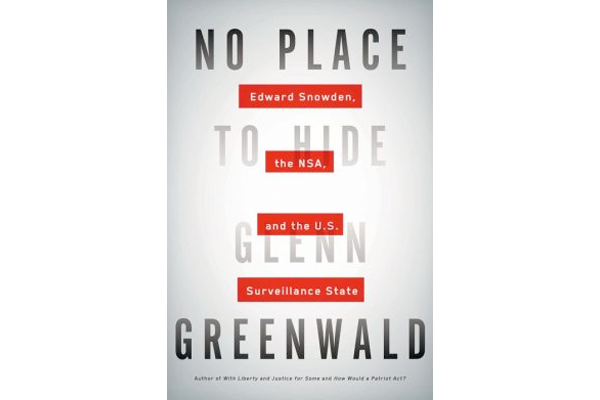Snowden and Secrecy

There is very little middle ground with regard to Edward Snowden in polarized America. The former CIA snoop with a license to hack made a U-turn one year ago and blew the whistle on the “surveillance state” that he had served for eight years. Is he a hero or a felon, traitor or patriot, an immature narcissist or a martyr to the cause of freedom and privacy?
A few things seem indisputable. Snowden, a high school dropout who, in 2004 at age 21, enlisted in the US Army with the goal of freeing Iraqis from oppression, subsequently rose meteorically within America’s top-secret security apparatus. After a training accident cut his military career short, he went from security guard in 2005 to technical expert for the CIA in 2006. The following year he was stationed in Geneva, undercover with diplomatic credentials, as a cyber-security expert. Soon he would be earning well over six figures a year.
Clearly, this young man was really good with computers and that was enough for the CIA and later the National Security Agency (NSA). Both were hungry for talented people to staff their burgeoning digital data collection and surveillance projects with colorful names like PRISM and Blarney. Many new recruits on the frontlines of America’s cyber wars are, like Snowden, 20-somethings
In "No Place to Hide: Edward Snowden, the NSA, and the US Surveillance State," bestselling author and Guardian journalist Glenn Greenwald tells how he broke the story on the trove of top secret documents that Snowden had spirited away from purportedly secure government computers. Snowden, it turns out, was a fan of Greenwald’s reporting. He liked Greenwald’s criticism of America’s post-9/11 security policies, including the warrantless wiretapping during George W. Bush’s tenure. Snowden invited Greewald and another journalist to be the first to report on what he knew and the documents he had stolen. As shocking as anything else in this book is the fact that these three individuals – months after documents had been downloaded – appeared to be the only ones who were aware that America’s secrets had been compromised.
By 2010, having left the CIA, Snowden was working on NSA projects as a Dell Corporation employee. He had become disillusioned: “The stuff I saw really began to disturb me. I could watch drones in real time as they surveilled the people they might kill. You could watch entire villages and see what everyone was doing. I watched NSA tracking people’s Internet activity as they typed. I became aware of how invasive US surveillance capabilities had become.… And almost nobody knew it was happening.”
What was happening included the wholesale amassing of metadata about hundreds of millions of Americans: with the help of major providers like Verizon, Google, and AT&T, the NSA was gathering, analyzing, and storing telephone records, e-mail and Skype traffic, Facebook and other social media activity from people at home and abroad. Who Americans were communicating with, where, when, and for how long had become fair game regardless of whether these citizens were active in Al Qaeda or the 4-H Club. The agency also has the capacity to extract the content of these communications if it sees fit. The Wall Street Journal reported that the NSA interception system “has the capacity to reach roughly 75% of all US Internet traffic.” Famously, the NSA also was listening to German Chancellor Angela Merkel’s telephone conversations.
Greenwald writes: “[Snowden’s] archive revealed the technical means used to intercept communications: the NSA’s taping of Internet servers, satellites, underwater fiber-optic cables, local and foreign telephone systems, and personal computers.” If the NSA didn’t reach its goal of “collecting it all,” it was gathering enough – 20 billion communication events (Internet and telephone) from around the world daily, according to Greenwald – that the agency could hardly store, much less analyze it.
Those who view Snowden as a traitor or a common thief will find this book tough sledding. Greenwald believes his subject is a hero who has done his country a great service by documenting how its government is violating the Fourth Amendment to the Constitution, which states: “The right of the people to be secure in their persons, houses, papers, and effects against unreasonable searches and seizures, shall not be violated….”
But even those who agree that having a full-blown debate on the balance between security, freedom, and privacy is healthy may find the book wanting in certain particulars. The author’s advocacy can be relentless and repetitious. He also is disdainful of major media entities that he believes are too cozy with the government – even as he quotes liberally from them to bolster his commentary.
A clear deficiency is the almost total lack of reporting on Snowden’s life, before or after his revelations shocked the world. The truth about him is undoubtedly more complex and interesting than the superficial whistleblower-in-shining-armor portrait that Greenwald conjures. The author also fails to address his subject’s residency in Russia, a nation not renowned for its devotion to democracy, the rule of law, or the rights of its citizens.
In the end, however, it is hard to argue with Greenwald’s contention that “the NSA is the definitive rogue agency” or this statement by Snowden: “I have been to the darkest corners of the government, and what they fear is light.” It is worth noting that while the US government asserts that its costly and ubiquitous surveillance efforts have stopped terrorist plots, it has yet to provide any specifics.